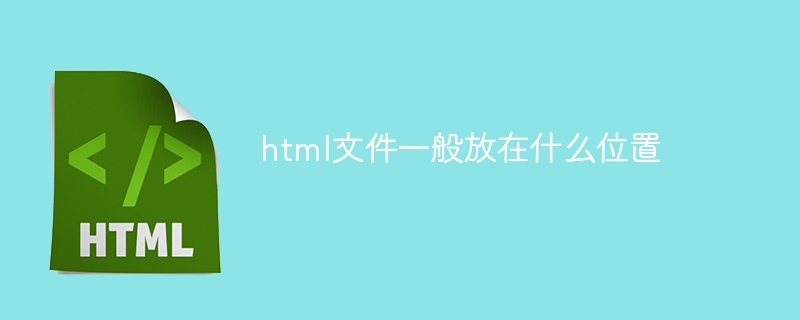Home >Web Front-end >HTML Tutorial >Where are html files generally placed?
Where are html files generally placed?
- 下次还敢Original
- 2024-04-11 04:04:43954browse
HTML files are typically stored in a designated directory on the web server (such as "htdocs" or "public_html") or in a convenient folder on the local computer (such as "Desktop" or "Documents"). Other storage locations include cloud storage services, content management systems, other file systems or partitions. Best practices include using a specified directory structure on the web server, using logical folders on the local computer, and using a version control system.

Where HTML files are stored
HTML (Hypertext Markup Language) files are usually stored in the following locations on your computer :
Web Server
- For websites hosted on the web, HTML files are usually stored in the "htdocs" or "public_html" directory of the web server.
Local computer
- For local development or testing, the HTML file can be stored anywhere on your computer. Usually save it in a conveniently accessible folder, such as Desktop or Documents.
Other locations
In some cases, HTML files can also be stored in:
- Cloud Storage Services: Such as Google Drive, Dropbox or Amazon S3.
- Content Management System (CMS): Such as WordPress or Drupal.
- Other file systems or partitions: Such as an external hard drive or network attached storage (NAS) device.
Best Practices
Storing HTML files in the appropriate location ensures the proper functioning of websites and applications. Here are some best practices:
- On a web server: Use the directory structure specified by the web server.
- On your local computer: Use folders that are logical and easy to find.
- Use a version control system: Manage changes to HTML files and prevent data loss.
The above is the detailed content of Where are html files generally placed?. For more information, please follow other related articles on the PHP Chinese website!

